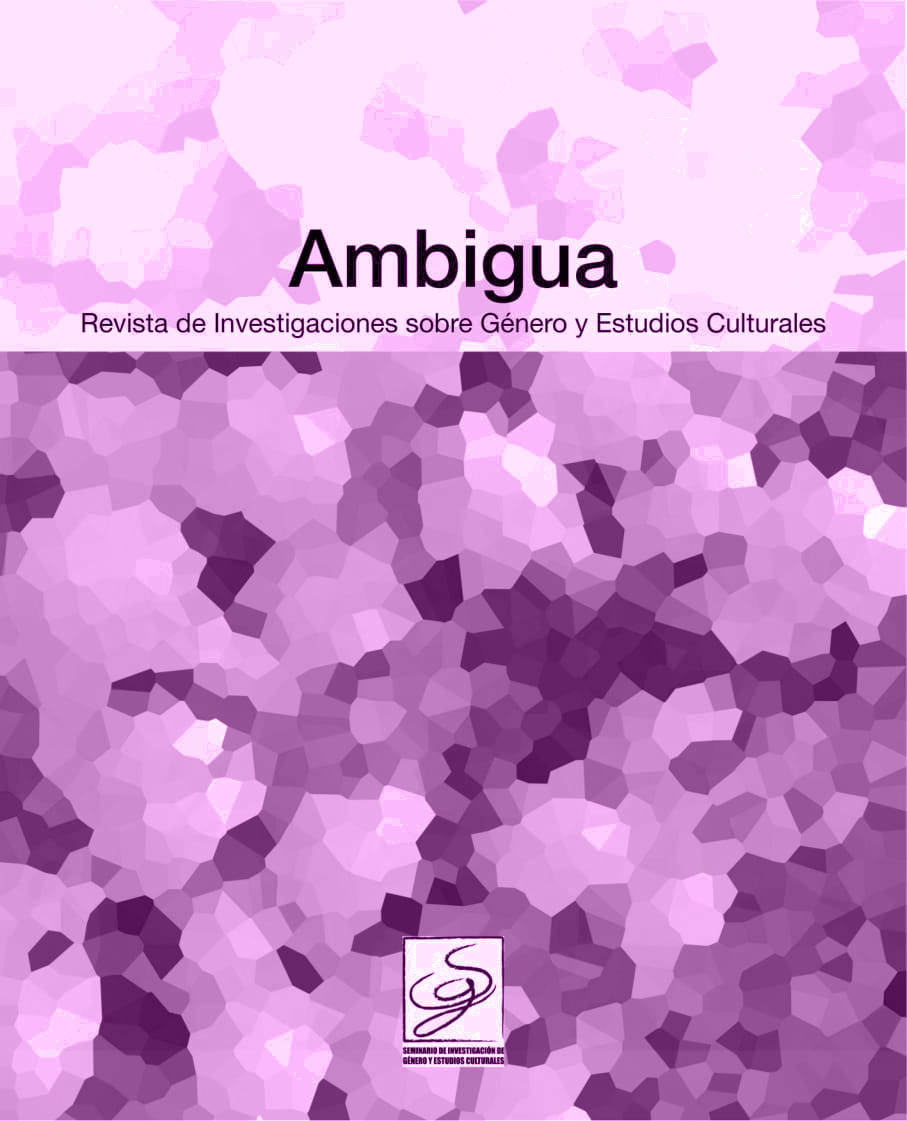Siempre han hablado por nosotras, Feminismo e identidad
Un manifiesto valiente y necesario de Najat El Hachmi, , Madrid, Destino, 2019, 134 pp.
DOI:
https://doi.org/10.46661/ambigua.4696Downloads
References
ADLBI SIBAI, Sirin. La cárcel del feminismo. Hacia un pensamiento islámico decolonial, Madrid: Akal, 2017.
EL HACHMI, Najat. Siempre han hablado por nosotras. Un manifiesto valiente y necesario, Madrid: Destino, 2019.
ELHATAWY, Mona. El himen y el hiyab. ¿Por qué el mundo árabe necesita una revolusión sexual? Madrid: Capitán Swing, 2018.
MAHMOOD, Saba. “Teoría feminista y el agente social dócil: algunas reflexiones sobre el renacimiento islámico en Egipto”. En Descolonizando el feminismo. Teorías y prácticas desde los márgenes, Liliana Suárez Návaz y Rosalva Aída Hernández (eds). 165-221. Madrid: Ediciones Cátedra, 2008.
MERNISSI, Fátima. El harén en Occidente. Madrid: Espasa Calpe, 2006.
MOHANTY, Chandra Talpade (2008): “Bajo los ojos de Occidente: academia feminista y discursos coloniales”. En Descolonizando el feminismo. Teorías y prácticas desde los márgenes, Liliana Suárez Návaz y Rosalva Aída Hernández (eds). 117-163. Madrid: Ediciones Cátedra, 2008.
Published
Versions
- 2020-12-16 (2)
- 2020-12-14 (1)
How to Cite
Issue
Section
License
Copyright (c) 2020 Ana Isabel Hernández Rodríguez

This work is licensed under a Creative Commons Attribution-NonCommercial-ShareAlike 4.0 International License.
The authors agree with the following:
1. Authors retain copyright and grant the journal right of first publication with the work simultaneously licensed under a license Attribution-NonCommercial-ShareAlike 4.0 International (CC BY-NC-SA 4.0) that allows others to share the work with an acknowledgement of the work's authorship and initial publication in this journal.
2. Authors are able to enter into separate, additional contractual arrangements for the non-exclusive distribution of the journal's published version of the work (e.g., post it to an institutional repository or publish it in a book), with an acknowledgement of its initial publication in this journal.
3. Authors are permitted and encouraged to post their work online (e.g., in institutional repositories or on their website) prior to and during the submission process, as it can lead to productive exchanges, as well as earlier and greater citation of published work (See The Effect of Open Access).









